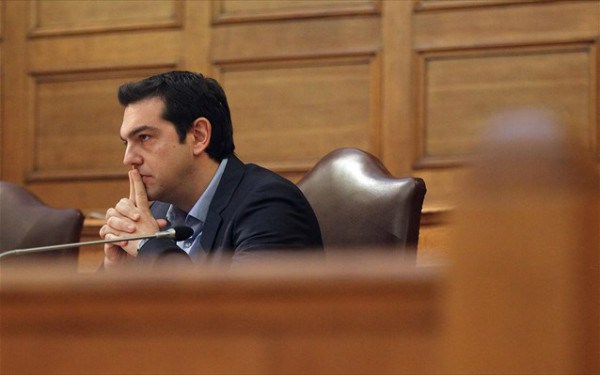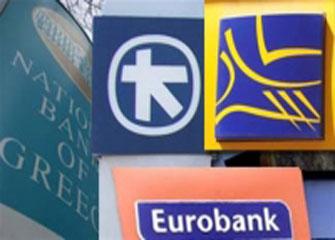By ERIC REGULY, The Globe and Mail
In Europe, there is no country more cursed than Greece. We know how the refugee crisis has swamped the country. More than 52,000 migrants are now boxed inside Greece following the decision by Macedonia and other Balkan countries, weary of the unending crush of migrants, to shut their borders.
Less well known is that the Greek financial crisis is not just intact but intensifying again. You just don’t read about it much because the refugee story – from the migrant drownings near the Greek islands to the European Union’s new deal with Turkey to deport migrants from Greece back to Turkey – has dominated the news since Greece came close to leaving the euro zone last summer.
The refugee crisis could yet push Greece out of the EU’s open border area, known as Schengen – it’s halfway out already – and the renewed financial crisis could still push it out of the euro zone. On the economic and financial front, not a lot has improved for Greece since it became the poster child for the “debt” crisis in 2010. The country is still in recession, still mired in debt that it cannot afford to pay, still suffering from crushing unemployment and still a ward of its bailout creditors – the EU and the International Monetary Fund.
Late last week, WikiLeaks provided another nasty reminder that the Greek financial crisis is alive and well and hurtling toward a dénouement, one that will buy it more time in the seemingly endless financial and geopolitical game known as “extend and pretend” or finally break it off the euro zone map.
The new flare-up came on the weekend, when WikiLeaks published the purported transcript of an internal mid-March IMF call, in which fund officials expressed frustration about the EU’s unwillingness to grant debt relief to Greece (Greece’s debt to gross domestic product is 180 per cent, the highest in the EU). The officials mention that the EU governments typically leave crucial decisions on Greece’s rescue attempts until the Greek government has run out of money and is on the point of insolvency.
The IMF is not part of Greece’s third and previous bailout, worth €86-billion ($128-billion), which was negotiated in rough form last summer, after the radical left government of Prime Minister Alexis Tsipras caved in to the EU’s demands at the last minute. The IMF is unwilling to take part in the third bailout – it led the first two – unless it is convinced that Greece is on the road to economic and fiscal recovery; it does not want to throw good money after bad. The EU creditors, led by Germany, want the IMF to play a prominent role in the third Greek bailout to give it credibility, technical support and political cover for Germany.
At one point in the conversation, Poul Thomsen, the IMF’s point man in Europe, seems to suggest threatening German Chancellor Angela Merkel into offering Greece some debt relief. He says that “basically, we at that time say, ‘Look, you Mrs. Merkel, you face a question, you have to think about what is more costly: to go ahead without the IMF, what would the Bundestag [German parliament] say, … or pick the debt relief that we think that Greece needs in order to keep us on board?”
Playing to his Greek audience, which considers the IMF the prime author of the austerity measures that deepened the recession to the point of economic destruction, Mr. Tsipras questioned the “good faith” of the fund officials. He apparently interpreted the IMF conversation as a plan to drag out the bailout negotiations over pension reform and other fiscal matters until July, when Greece faces ballooning debt payments, all the better to squeeze concessions from both Greece and the EU.
IMF managing director Christine Lagarde essentially dismissed Mr. Tsipras’s accusations as paranoia. In a letter to the Prime Minister, she said: “The IMF conducts its negotiations in good faith, not by way of threats, and we do not communicate through leaks.”
But she confirmed, in effect, that the third Greek bailout program and Greece itself were still a shambles. “We are still a good distance from having a coherent program … I have, on my many occasions, stressed that we can only support a program that is credible and based on realistic assumptions, and that delivers on its objective of setting Greece on a path of robust growth while gradually restoring debt sustainability.”
The lack of progress in tidying up the third bailout is bound to produce a toxic outcome. Germany and its EU partners have given no hint that they will offer to incinerate a lump of Greece’s debt. Germany and Greece have no love or trust for one another. Remember that, at one point late last spring, German Finance Minister Wolfgang Schaeuble suggested that Greece take a nice, long holiday from euro zone membership. Having threatened to push Greece out once already, Germany and its allies are likely to suggest it again if Greece doesn’t offer up the reforms demanded by its creditors in the third bailout.
A year ago, the refugee and financial crises threatened to overwhelm Greece. They threaten to do so again this year. Greece can take only so much before it shatters.



















